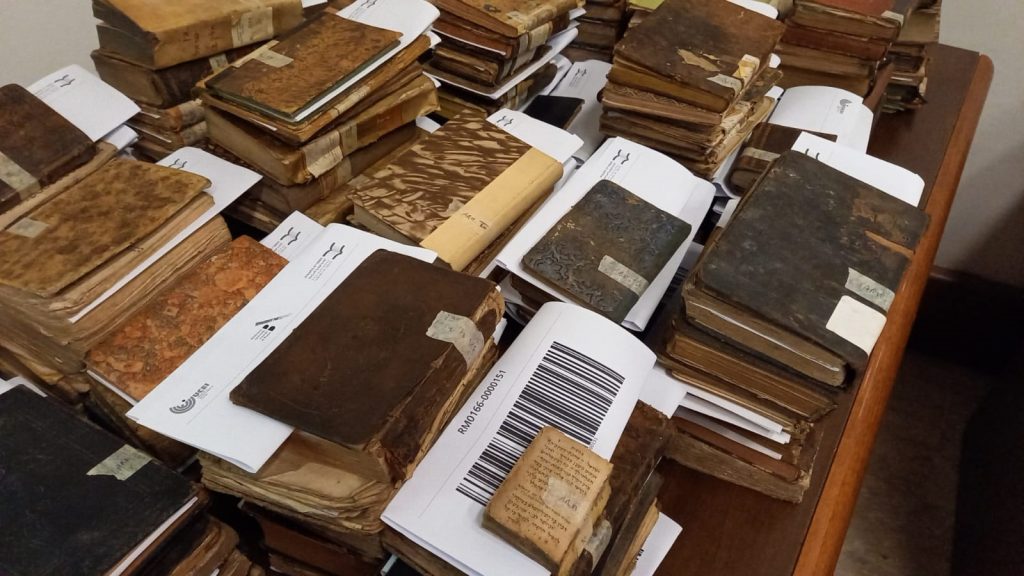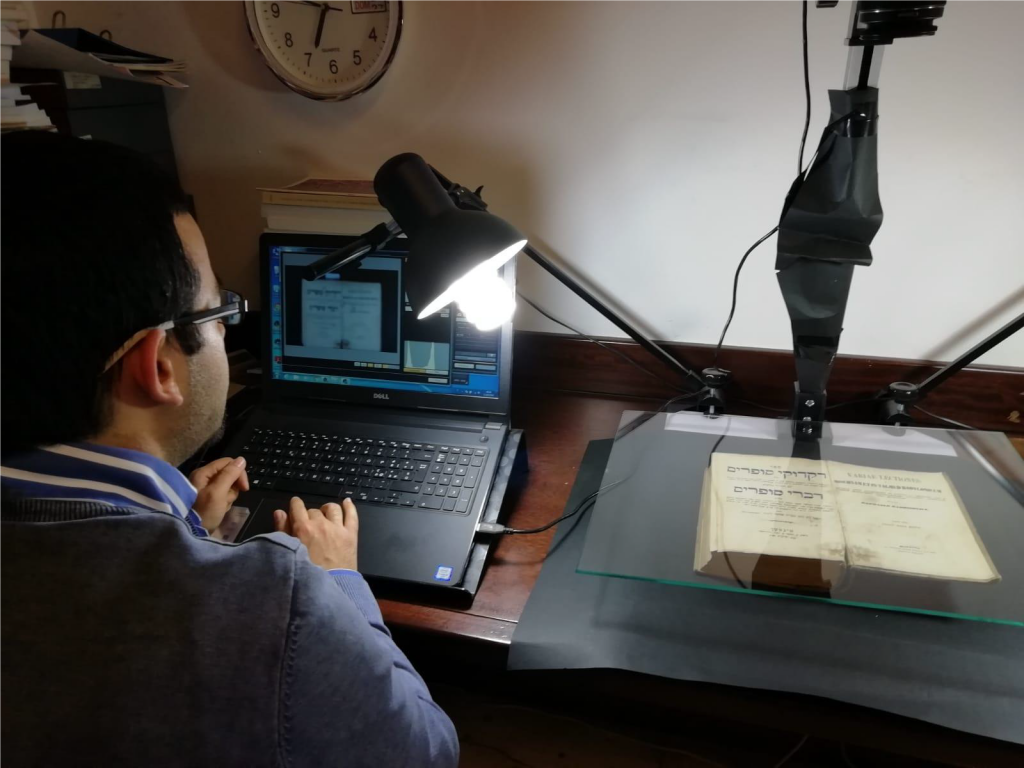I-TAL-YA Books is based on a ground breaking workflow process, which was developed to enable all the different players in the project – dispersed across Italy, Israel and the UK – to work together effectively.
There are five main stages to the process.

Preparation – carried out at the location of the book holdings. Each book is checked and relevant pages selected for photography.

Photographing – specially trained photographers take images of each of the selected book and upload these onto a dedicated digital project management system, that has been specifically tailored for the I-TAL-YA Books project.

Cataloguing – working remotely in Turin, Rome, Sicily – our cataloguers use the digitized images to identify the books, and to create the catalogue entries that are eventually uploaded onto the TECA system. The cataloguers work closely with colleagues at the National Library of Israel to check whether the book has already been catalogued elsewhere (including by the Library of Congress) and to enrich the data on each book wherever possible.
Finally the catalogue entry, including the images, are uploaded onto the Biblioteca Digitale platform at the National Central Library of Rome.
The process was developed and tested through an initial pilot in 2019 of 2000 books, this was then refined and improved which will enable us to scale-up – starting with 10,000 books from Rome and Turin by the end of 2021, in the next phase we plan to expand the project to other regions in 2022 – 2023.
We are very pleased that despite the immense practical difficulties through the Corona pandemic, we were able to carry out the training, and start implementing the project remotely through improvisation, creativity and much goodwill.
I-TAL-YA books would like to thank all of the librarians, community volunteers, photographers and cataloguers for their valuable contributions towards the success of the project.


